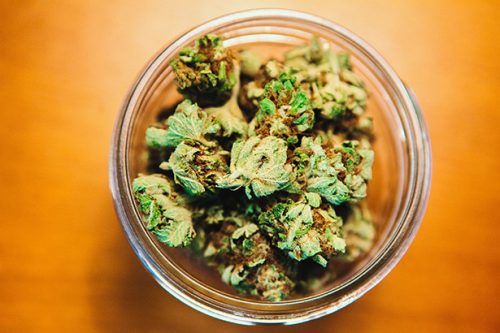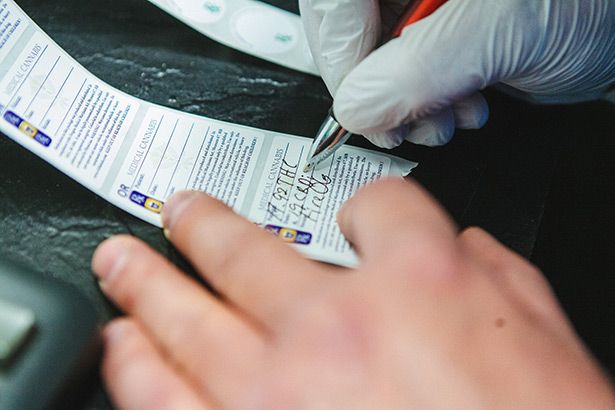
When David Evans checked his mail on March 22, what he found made him want to shout from the rooftops. “We have it! We have it finally!” Evans recalls thinking, adding, “When it finally arrived in the mail I had this really unusual sensation of having this wonderful secret that only I knew.”
Well, the secret is out. The Oregon Health Authority approved his application for Emerald City Medicinal (ECM), making Evans the first proud owner to legally operate a medicinal marijuana dispensary in Eugene.
This year, Eugene will mark its first 4/20 with legally operating medical marijuana dispensaries. On April 4, the Oregon Medical Marijuana Dispensary Program approved 10 dispensary applications, bringing the total number of approved applications to 32 statewide, with five approved in Eugene and one in Springfield. This is thanks in part to House Bill 3460, which Gov. Kitzhaber signed into law in August 2013. HB 3460 created the legal basis for medical marijuana facilities to be able to transfer marijuana from growers to patients. In other words, it allowed for Evans to make his business legit. To become legitimate in this business, however, can be a long, winding and expensive road, and dispensaries aren’t legally allowed to make a profit. But if you get to the end, as Evans has, it pays off.
“The feedback I’ve gotten is a lot of gratitude that we’ve gone through all the state hurdles and kind of been willing to be trailblazers if you will,” he says. His background in law helped him navigate the process, Evans says. He was a partner in the Vincent, Victor & Evans law firm until 2004, when pain from migraines, trigeminal neuralgia and arthritis forced him to step down. After years of trying pharmaceutical drugs with no improvement, he became a medical cannabis patient himself. Evans also lost two brothers-in-law to cerebral cancer. “I would have liked to have been able to offer [cannabis] as another weapon in their arsenal to fight cancer at the time,” he says. Finding his own relief through medical marijuana and wanting to provide that to others, Evans decided to start a dispensary. “It became clear to me that this is something that desperately needed to happen,” he says.
The application fee for the dispensary license is $4,000. Evans also had to find a location at least 1,000 feet away from a school or other dispensaries (ECM found a spot at 1472 W. 6th Ave), and he had to install a high-tech security system. Giving legitimacy to these pricy ventures allows other businesses and business people, from security system companies to certified public accountants, to get involved with less risk.

Legitimacy also brings more patients. ECM had 570 members the week the dispensary received its license; they now have 660. “We’re averaging about 10 new patients a day,” Evans says. A potential patient, or member, of any dispensary must have their OMMP card (Oregon Medical Marijuana Program). “There’s no charges to being a member, no monthly dues,” Evans explains. “We just ask you to agree to a code of conduct and that’s a reflection of what the state and federal government’s concerns are.”
Once patients are signed up, they are granted access to the “apothecary” or clinic part of the dispensary. “Then, we’ll try and best pair you up with the medicine in the form that will be most effective for you and any strains that will have the desired effect,” Evans says.
“One of the things that we find to be really exciting about having our own testing facility and getting access to testing all of the strains is that our information is no longer anecdotal,” Evans says. He predicts custom-grown medicines in the near future. “We have thousands of strains of cannabis now and there will be increasingly more as growers are able to move forward without the same kind of logistical problems they have historically faced,” he says.
Evans might consider moving into recreational use with the potential for state legalization on the horizon in November.
“We believe it has a medicinal role, but beyond that we believe it has other uses which are legitimate legal rights for people. People have the right to modify their state of mind through sugar or caffeine, alcohol or tobacco, and we see that as being the same kind of personal freedom issue.” However, he notes, “It depends on what shape the recreational program takes,” adding that, “We would be happy to help patients if they’re interested in pursuing it for recreational or spiritual or religious use as far as that goes. We’re happy to help people achieve the desired goals, but our commitment is to our medical cannabis patients.”
Photos by Todd Cooper.